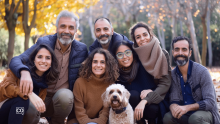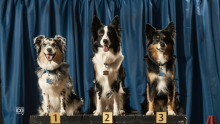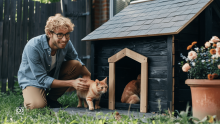10K+ students - 4.8/5
Spanish course: A1 beginner (syllabus)
Spanish a1 syllabus with audio, writing exercises, grammar and vocabulary materials for usage during our conversation lessons.
-
6 learning modules per level
Practical situations
Audio, video and exercises
| Chapter | Learning goals | Lesson materials | Actions |
|---|---|---|---|
|
A1:1
Saludos y despedidas
(Greetings and Farewells)
Learning module 1 (A1):
Presentarse
(To introduce oneself)
|
|
A1.1.1 Diálogo: Ana y Pedro se presentan A1.1.2 Cuento corto: Los saludos de Juan |
Share Copied! |
|
A1.2.1 Diálogo: Pedro y Ana se encuentran de nuevo A1.2.2 Cuento corto: Pedro se presenta en clase |
Share Copied! | |
|
A1:3
¿De dónde eres?
(Where are you from?)
Learning module 1 (A1):
Presentarse
(To introduce oneself)
|
|
A1.3.1 Diálogo: Ana y Pedro hablan de sus raíces A1.3.2 Cuento corto: Los orígines de Stefan A1.3.3 Cultura: España y sus regiones |
Share Copied! |
|
A1:4
Números y contar
(Numbers and counting)
Learning module 1 (A1):
Presentarse
(To introduce oneself)
|
|
A1.4.1 Cuento corto: Practicando matemáticas A1.4.2 Cultura: Los números en el Juego de La Oca A1.4.3 Gramática: Números cardinales: básicos A1.4.4 Gramática: Números cardinales: centenas, miles, millones |
Share Copied! |
|
A1.5.1 Diálogo: La familia de Eva A1.5.2 Cuento corto: La familia de Juan |
Share Copied! | |
|
A1.6.1 Diálogo: Hablar sobre el cumpleaños A1.6.2 Cuento corto: El cumpleaños de Ana A1.6.3 Cultura: Tradiciones de cumpleaños en España A1.6.4 Gramática: Palabras interrogativas: ("cuánto" y "cuándo") |
Share Copied! | |
|
A1:7
Profesiones y estudios
(Professions and studies)
Learning module 1 (A1):
Presentarse
(To introduce oneself)
|
|
A1.7.1 Diálogo: Conversación sobre el trabajo y los estudios A1.7.2 Cuento corto: Sueños de estudiante A1.7.3 Cultura: Estudios Universitarios en España A1.7.4 Gramática: Palabras interrogativas: "dónde, cuál, qué" |
Share Copied! |
|
A1:8
Dirección y datos de contacto.
(Address and contact details.)
Learning module 1 (A1):
Presentarse
(To introduce oneself)
|
|
A1.8.1 Diálogo: ¿Me das tu contacto? A1.8.2 Cuento corto: Crear una cuenta personal A1.8.3 Gramática: Presente de indicativo: los verbos regulares |
Share Copied! |
|
A1:9
Días de la semana y partes del día.
(Days of the week and parts of the day)
Learning module 2 (A1):
De horas a estaciones
(From hours to seasons)
|
|
A1.9.1 Diálogo: ¿Cuándo nos vemos? A1.9.2 Cuento corto: Una semana en la vida de Eva |
Share Copied! |
|
A1:10
El clima y el tiempo
(The weather)
Learning module 2 (A1):
De horas a estaciones
(From hours to seasons)
|
|
A1.10.1 Diálogo: Un día soleado, lluvioso, y un posible arcoíris A1.10.2 Cuento corto: ¡El Tiempo Loco de Nuestro Pueblo! |
Share Copied! |
|
A1:11
Números ordinales
(Ordinal numbers)
Learning module 2 (A1):
De horas a estaciones
(From hours to seasons)
|
|
A1.11.1 Diálogo: ¿En qué piso vives? |
Share Copied! |
|
A1:12
Estaciones, meses y partes del año.
(Seasons, months and parts of the year)
Learning module 2 (A1):
De horas a estaciones
(From hours to seasons)
|
|
A1.12.1 Diálogo: Las estaciones favoritas de Ana y Pedro A1.12.2 Cuento corto: Viajamos con Ana en cada estación del año A1.12.3 Cultura: Sintiendo las estaciones a través de la música |
Share Copied! |
|
A1:13
Decir la hora y leer el reloj.
(Telling the time and reading the clock)
Learning module 2 (A1):
De horas a estaciones
(From hours to seasons)
|
|
A1.13.1 Diálogo: ¿Qué hora es? A1.13.2 Cuento corto: Cada minuto cuenta |
Share Copied! |
|
A1:14
Fechas del calendario y días festivos.
(Calendar dates and holidays)
Learning module 2 (A1):
De horas a estaciones
(From hours to seasons)
|
|
A1.14.1 Diálogo: Planificando las fiestas navideñas con Pedro y Ana A1.14.2 Cuento corto: Un año de celebraciones con Pedro |
Share Copied! |
|
A1.15.1 Diálogo: ¿Qué desayunas cada día? A1.15.2 Cuento corto: Un día de comida saludable |
Share Copied! | |
|
A1.16.1 Diálogo: Las rutinas diarias A1.16.2 Cuento corto: Ana se prepara para una entrevista de trabajo |
Share Copied! | |
|
A1.17.1 Diálogo: Ingredientes para un gazpacho andaluz A1.17.2 Cuento corto: Receta para una tarta de queso casera A1.17.3 Cultura: Las tapas españolas A1.17.4 Gramática: Obligaciones - "hay que, tener que, deber" |
Share Copied! | |
|
Share Copied! | ||
|
A1.19.1 Diálogo: Pagar en el mercado |
Share Copied! | |
|
A1.20.1 Diálogo: La compra en el mercado A1.20.2 Cuento corto: Marta en el supermercado |
Share Copied! | |
|
A1.21.1 Cultura: El traje de flamenca A1.21.2 Gramática: Los verbos modales (deber, poder, querer...) |
Share Copied! | |
|
A1.22.1 Cuento corto: El parecido de Juan y su familia |
Share Copied! | |
|
A1:23
Apariencia física
(Physical appearance)
Learning module 4 (A1):
Describir objetos y personas.
(Describing objects and people)
|
|
A1.23.1 Cuento corto: Una fiesta divertida |
Share Copied! |
|
A1:24
Colores
(Colours)
Learning module 4 (A1):
Describir objetos y personas.
(Describing objects and people)
|
|
A1.24.1 Cuento corto: Ana, Javier y los colores A1.24.2 Cultura: Colores de España: La bandera española A1.24.3 Gramática: Expresar gustos y disgustos: (no) me gusta |
Share Copied! |
|
A1:25
Emociones y sentimientos
(Emotions and feelings)
Learning module 4 (A1):
Describir objetos y personas.
(Describing objects and people)
|
|
A1.25.1 Diálogo: ¿Cómo te sientes hoy? |
Share Copied! |
|
A1:26
Sentidos y percepción
(Senses and perceiving)
Learning module 4 (A1):
Describir objetos y personas.
(Describing objects and people)
|
|
Share Copied! | |
|
A1:27
Todo tipo de formas
(Shapes and forms)
Learning module 4 (A1):
Describir objetos y personas.
(Describing objects and people)
|
|
Share Copied! | |
|
A1:28
Carácter y personalidad
(Character and personality)
Learning module 4 (A1):
Describir objetos y personas.
(Describing objects and people)
|
|
A1.28.1 Cuento corto: ¿Cómo es Pedro? |
Share Copied! |
|
A1:29
Estado físico y sensaciones.
(Physical states and sensations)
Learning module 4 (A1):
Describir objetos y personas.
(Describing objects and people)
|
|
A1.29.1 Diálogo: Después del Gimnasio A1.29.2 Cuento corto: Ser consciente del cuerpo |
Share Copied! |
|
A1:30
En el medico
(At the doctor)
Learning module 4 (A1):
Describir objetos y personas.
(Describing objects and people)
|
|
Share Copied! | |
|
A1.31.1 Diálogo: Día de invitados |
Share Copied! | |
|
A1.32.1 Cuento corto: Un día en la casa de Eva A1.32.3 Gramática: "Haber" vs "Estar" : artículo indeterminado vs determinado |
Share Copied! | |
|
A1.33.1 Gramática: Preposiciones de lugar: "en, sobre, entre,..." |
Share Copied! | |
|
A1.34.1 Cultura: La Mesa Camilla y El Brasero A1.34.2 Gramática: Los verbos irregulares en la primera persona del presente |
Share Copied! | |
|
A1.35.1 Diálogo: Búsqueda de alojamiento para las vacaciones A1.35.2 Cuento corto: Vacaciones en Galicia A1.35.3 Cultura: Alojamientos Históricos - Los Paradores A1.35.4 Gramática: Conectar cláusulas con adverbios: "entonces, porque, también, tampoco" |
Share Copied! | |
|
Share Copied! | ||
|
A1.37.1 Cultura: El amor por las mascotas en España A1.37.2 Gramática: Comparación y reciprocidad: "este..otro / uno..otro" |
Share Copied! | |
|
A1:38
Servicios cotidianos
(Everyday services)
Learning module 6 (A1):
La ciudad y el pueblo
(The city and the village)
|
|
A1.38.1 Cultura: La Biblioteca Nacional de España A1.38.2 Gramática: El participio como adjetivo y uso con "estar" |
Share Copied! |
|
A1:39
Pedir comida y salir a cenar
(Ordering food and dining out)
Learning module 6 (A1):
La ciudad y el pueblo
(The city and the village)
|
|
A1.39.1 Diálogo: ¿Qué te ha parecido la comida? A1.39.2 Cuento corto: Reservar una mesa y pedir en un restaurante A1.39.3 Cultura: Ferran Adrià y el restaurante "El Bulli" A1.39.4 Gramática: "Haber" + participio (el pretérito perfecto) |
Share Copied! |
|
A1:40
Deportes y ejercicio
(Sports and exercise)
Learning module 6 (A1):
La ciudad y el pueblo
(The city and the village)
|
|
A1.40.1 Diálogo: ¿Qué deporte te gusta? A1.40.2 Cuento corto: Juan y el deporte A1.40.3 Cultura: Real Madrid y Barça: el fútbol español A1.40.4 Gramática: Adverbios de tiempo (frecuencia y duración) |
Share Copied! |
|
A1:41
Describir pasatiempos
(Describing hobbies)
Learning module 6 (A1):
La ciudad y el pueblo
(The city and the village)
|
|
A1.41.1 Cuento corto: Un fin de semana perfecto con amigos A1.41.2 Cultura: Planes de fin de semana en ciudades españolas |
Share Copied! |
|
A1:42
Transporte
(Transportation)
Learning module 6 (A1):
La ciudad y el pueblo
(The city and the village)
|
|
A1.42.1 Diálogo: Viaje a la ciudad A1.42.2 Cuento corto: El viaje de Sofía. A1.42.3 Cultura: El tren de alta velocidad: el AVE de España A1.42.4 Gramática: Preposiciones de lugar: movimiento y ubicación |
Share Copied! |
|
A1:43
Pedir y dar direcciones.
(Asking for and giving directions)
Learning module 6 (A1):
La ciudad y el pueblo
(The city and the village)
|
|
A1.43.1 Diálogo: ¿Cómo Llegar al Parque? |
Share Copied! |
|
A1:44
Música y arte
(Music and art)
Learning module 6 (A1):
La ciudad y el pueblo
(The city and the village)
|
|
A1.44.1 Diálogo: ¿Qué haces el fin de semana? A1.44.2 Cuento corto: ¡Vamos a ver una exposición! |
Share Copied! |











































